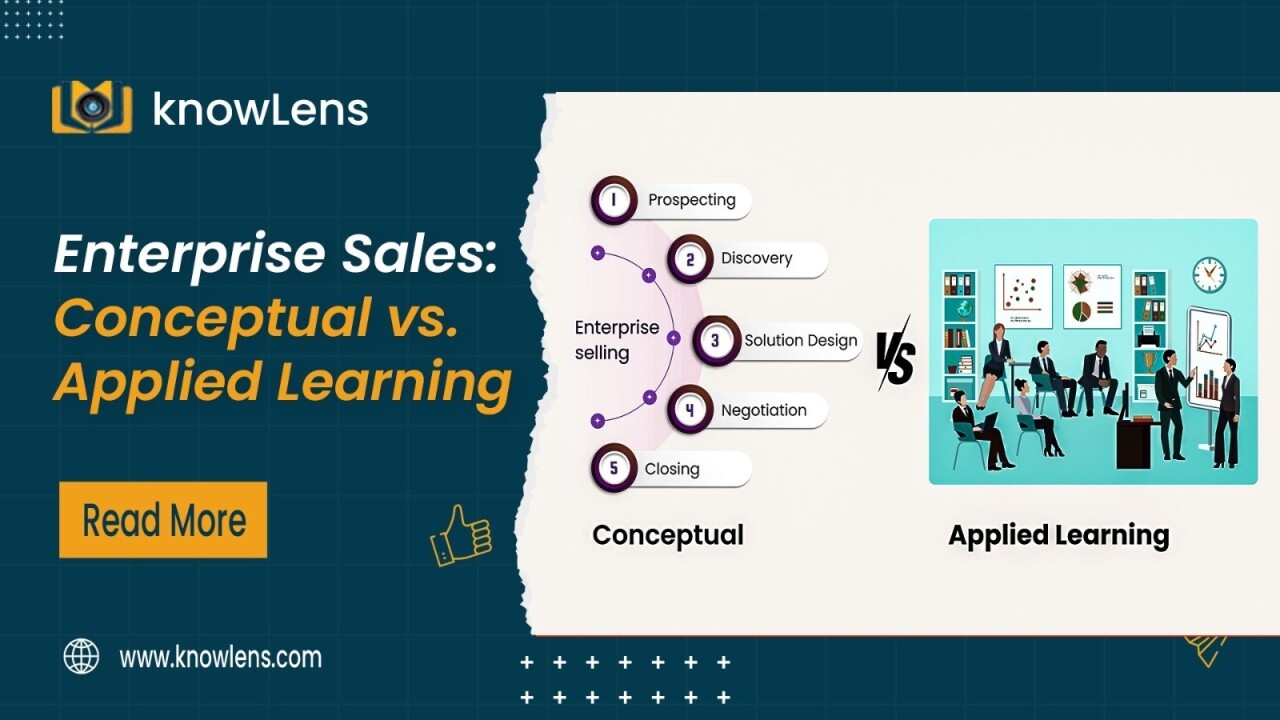Enterprise selling is a complex and highly specialised skill, way too complex for a simple article like this. In this piece, we examine enterprise sales training with a case study within the Logistics industry where the complexity of supply chains meets the intricacy of B2B sales – a perfect fusion of theoretical knowledge and practical application. Organizations are struggling to bridge the gap between textbook B2B sales approaches and the nuanced reality of logistics sales as experienced in real world scenarios.
The L&D Challenge: Theory Vs. Application
Consider teaching a basic B2B sales framework. It’s relatively straightforward to communicate through traditional methods: “Always identify the customer’s pain points and present solutions that address their specific needs.”
Beautiful words – conceptually perfect but what does it mean for a logistics sales professional dealing with a manufacturer’s urgent need for temperature-controlled cross-border shipping? Or a freight forwarder negotiating multi-modal transport solutions?
Let’s take a deeper dive with a real-world example:
B2B Sales Principle (Definition) “Solution selling is about understanding customer needs and presenting appropriate solutions that solve their business challenges.”
Add to this, concepts like influencers, decision makers, gatekeepers, corporate negotiation skills – crucial concepts and easily documented through a presentation. But is it really understood by the front line sales person? For instance when he meets the secretary of the decision maker in his prospective client company….what are the tricks of the trade in getting a meeting with the decision maker, getting important nuggets of information from the secretary pre meeting etc. After all, these are the tricks which decide who succeeds in sales and who doesn’t ? If learning programs do not address this, whats the point?
Perfect in theory, but the devil lies in the application of the concept in logistics contexts.
A number of the current programs are designed with an international flavour either in the US or UK and do not resonate with Indian ground reality.
The Power of Industry-Specific Demonstration
This is where applied learning becomes crucial. Instead of just teaching general B2B sales principles, consider a video scenario:
A logistics sales representative meets with a client who needs to ship perishable goods internationally.
Suppose we were to demonstrate the entire sales cycle from getting the initial meeting, meeting influencers, dealing with the gatekeepers who could be the secretary or even a watchman etc. Preparing by doing research about the client – the kind of business they are in – their likely needs in shipping perishable goods etc
Relationship building in Logistics has a very different flavour from relationship building in say software sales. The profiles of the sales person, the clients are vastly different. This is where visual and behavioural elements become crucial. Does the training cover these elements?
Or taking an example of a simple meeting with a client, prior to the decision maker meeting, a meeting with an influencer could focus on porbing rather than pitching the standard product:
- Probe about specific temperature requirements
- Understand the customer’s preferences on the approach towards technology solutions
- Discuss previous shipping challenges
- Explore seasonal volume variations
- Consider customs clearance timeframes
The Right Mix of Conceptual and Applied Learning
All enterprise sales training requires both domain and conceptual expertise and practical application. For instance:
- Conceptual knowledge provides the foundational understanding of shipping terms, regulations, and pricing models
- Applied learning shows how to use this knowledge in real customer interactions
The Future of Enterprise Sales Training
Today’s enterprise sales environment demands more verticalization than standardized B2B training modules. Successful organizations are:
- Creating India centric content
- Creating industry-specific scenario training
- Developing practical situations that reflect real challenges
- Leveraging new age learning methods like films that imtegrate theoretical understanding and practical application including visual and behavioural elements

